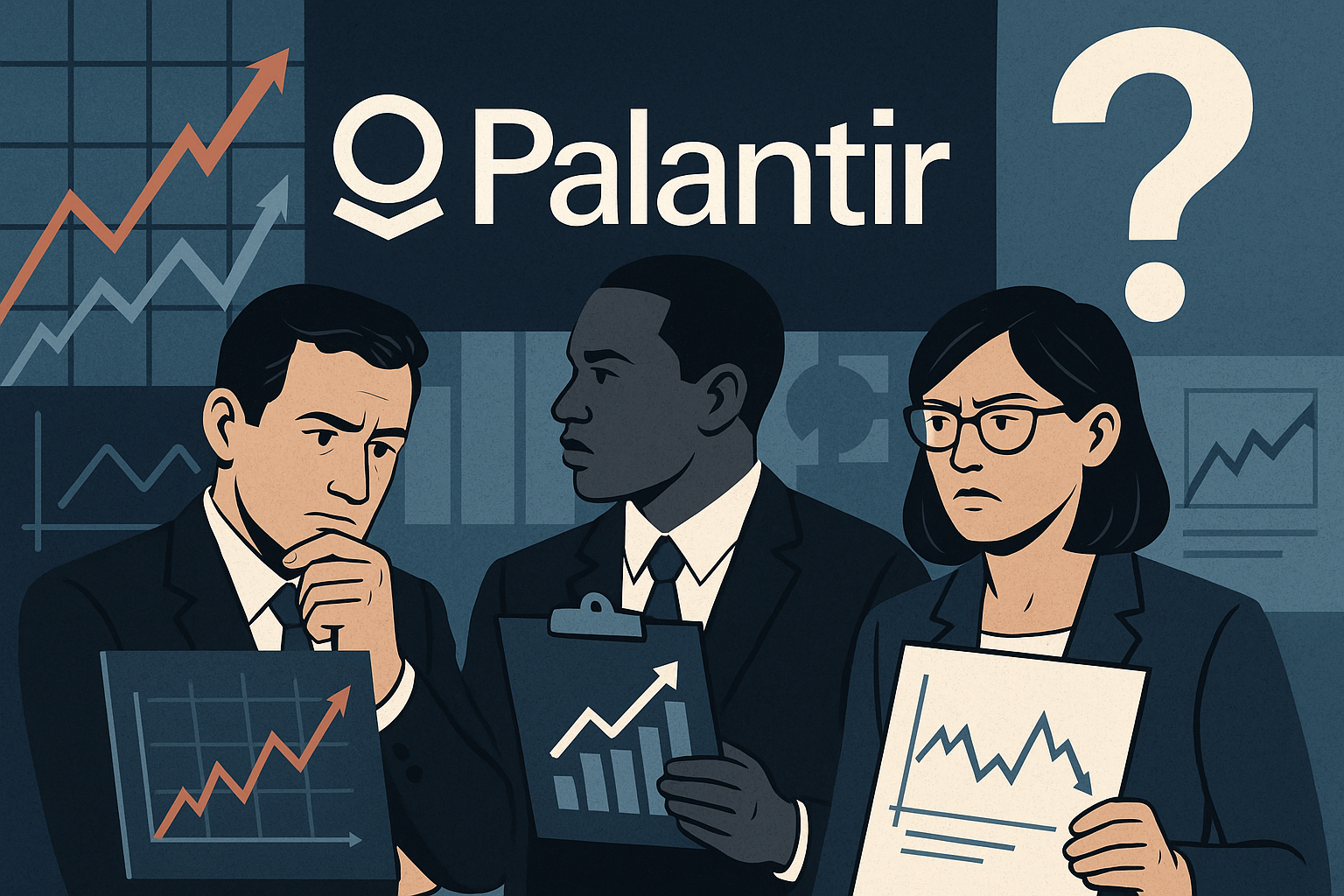Financial News
Is Palantir’s AI Edge Overhyped or Undervalued? Analysts Weigh In.

In the crowded field of artificial intelligence, few companies have generated as much intrigue—and debate—as Palantir Technologies. Once best known for its secretive government contracts and clandestine data analytics work, Palantir is now increasingly recognized as an AI powerhouse. With its high-profile launches of platforms like AIP (Artificial Intelligence Platform) and a growing roster of commercial clients, some market watchers believe Palantir is poised to lead the next AI revolution. But is the company’s “AI edge” truly as formidable as its supporters claim, or is Wall Street inflating expectations far beyond reality? A close look at analyst opinions, Palantir’s product strategy, and the competitive landscape offers nuanced answers.
Palantir’s AI Push: Ambition Meets Execution
Palantir’s transformation from a data analytics provider to an AI-driven solutions company has been nothing short of dramatic. In 2023, the company unveiled AIP, a platform designed to integrate large language models and generative AI capabilities into enterprise workflows—making it easier for governments, Fortune 500 companies, and other organizations to harness AI’s potential without building bespoke tools from scratch.
CEO Alex Karp has not been shy about promoting the company’s ambitions. In multiple earnings calls, Karp positioned Palantir as a foundational player in the coming era of “machine intelligence,” suggesting that the company’s deep experience with secure, mission-critical deployments sets it apart from the wave of new AI startups.
“AI is not about flashy demos; it’s about operationalization at scale, with trust and transparency,” Karp told investors. “That is where Palantir delivers.”
Analyst Bull Case: Undervalued AI Capabilities?
Some Wall Street analysts argue that the market is underestimating Palantir’s long-term AI potential, particularly in high-security and highly regulated environments. The company’s deep ties with the U.S. government, NATO allies, and sensitive commercial clients provide it with data access and implementation expertise that are difficult for competitors to replicate.
“Palantir is one of the few pure-play public companies with a proven track record in operational AI,” says Morgan Stanley analyst Keith Weiss. “Their work with defense and healthcare organizations—where accuracy, security, and explainability matter most—gives them an edge that is hard to value using standard tech multiples.”
Some bulls point to the company’s growing commercial bookings and robust operating margins as signs that its AI offerings are gaining real-world traction. In its most recent quarter, Palantir reported strong growth in commercial revenues, particularly from sectors like manufacturing, energy, and healthcare. The flexibility of AIP, which allows clients to deploy AI models in highly customized ways, is cited as a key differentiator.
“We see Palantir as uniquely positioned at the intersection of AI, data integration, and security,” wrote Wedbush Securities’ Dan Ives in a recent note, reiterating an outperform rating on the stock. “The market does not yet fully appreciate the breadth of their commercial AI opportunity.”
The Bear Case: Hype Outpaces Reality
Not all analysts are convinced that Palantir’s AI advantage is as pronounced—or as monetizable—as the bulls believe. Some critics argue that the company’s AI offerings are still largely an extension of its core data analytics platforms, and that true generative AI breakthroughs are coming from elsewhere, notably the likes of Microsoft, Google, and open-source communities.
“Palantir has always been great at selling the vision, but when you look at the numbers, the commercial AI story is still in its early innings,” says Jefferies analyst Brent Thill. “The competition in AI is fierce, and many enterprises are still hesitant to go all-in with a single vendor, especially for mission-critical AI applications.”
Other skeptics raise concerns about Palantir’s government-heavy revenue base and question whether the company can successfully expand into commercial sectors without diluting its brand or running into regulatory and integration hurdles.
Additionally, while Palantir touts the security and flexibility of its AI solutions, some industry insiders argue that many large organizations prefer to build AI in-house or partner with larger cloud providers that can offer a broader suite of services.
AI Competition Heats Up
The competitive environment for AI services is only getting more intense. Tech giants like Microsoft, Amazon, and Google are aggressively investing in enterprise AI, often bundling advanced machine learning tools into their already-dominant cloud platforms. Meanwhile, upstart firms are racing to commercialize open-source AI models, lowering the barriers to entry for potential Palantir clients.
Palantir’s challenge is to differentiate itself as a trusted AI partner for organizations that demand high security, transparency, and domain-specific expertise—a tall order as more vendors enter the market.
“Palantir’s value proposition is strongest in industries where data privacy, explainability, and compliance are non-negotiable,” says RBC Capital Markets’ Rishi Jaluria. “But that’s a niche market compared to the broader AI gold rush.”
Valuation: Caught Between Potential and Proven Growth
The debate over Palantir’s AI edge is reflected in its stock valuation. Shares of Palantir (NYSE: PLTR) have been highly volatile, with bullish sentiment often clashing with profit-taking and skepticism about long-term growth rates. The company’s price-to-sales ratio remains elevated relative to traditional IT services firms, underscoring investor belief in a transformative AI story—but also exposing the stock to significant downside if execution falters.
Some analysts recommend a “wait and see” approach, arguing that Palantir needs to convert more commercial AI pilots into large-scale deployments before it can justify premium multiples.
Conclusion: Overhyped, Undervalued, or Simply Misunderstood?
Palantir’s push into AI has undeniably changed the company’s narrative—and put it at the center of one of technology’s most exciting (and contentious) debates. Bulls see a company with unmatched expertise in secure, scalable AI; bears see a stock priced for perfection in a market that may soon become saturated.
The truth may lie somewhere in between. Palantir’s AI edge is real in certain sectors, but whether that translates into sustainable, market-beating growth remains an open question. As the company continues to report results and win new clients, analysts and investors will be watching closely for signs that the promise of AI is translating into durable profits.
Disclaimer: This article is for informational purposes only and does not constitute investment advice. Please consult a licensed financial advisor before making any investment decisions.
More News
View More





Quotes delayed at least 20 minutes.
By accessing this page, you agree to the following
Privacy Policy and Terms Of Service.



